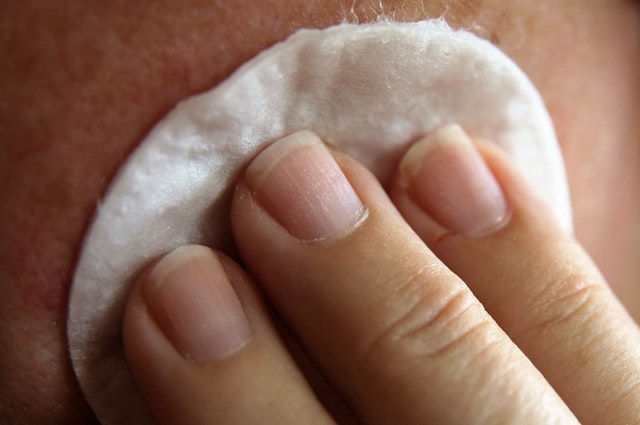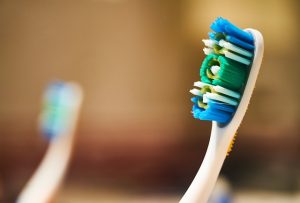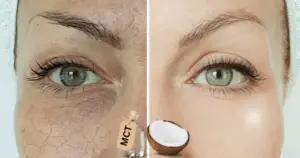IBS and Acne- Is There A Link?
IBS and Acne- Is There a Link?

When you buy through links on our site, we may earn an affiliate commission at no additional cost to you (learn more)
If you already suffer from Irritable Bowel Syndrome (IBS) or some other chronic gastrointestinal disorder, it may seem doubly unfair that you are also more likely to have chronic adult acne. Many GI problems are caused by increased inflammation in the body, which is also a leading contributor to developing pimples, blackheads, and other skin blemishes. Learning more about the link between IBS and acne can help you control your outbreaks and keep your skin looking clear.
What is adult acne?
At least one-third of women and one-quarter of adult men report at least occasional acne breakouts, so this problem is not uncommon. The most frequent causes of adult acne include fluctuating hormones, stress, and medical disorders, including diseases such as IBS. Diet can also trigger skin breakouts.
Acne is the result of clogs in the Sebaceous glands of your skin. Each of these glands is the base of a hair follicle, and your skin naturally produces sebum, an oily substance that keeps both the hair and your skin moisturized. If you are producing too much sebum, this excess can mix with dead skin cells to clog the opening, resulting in a pimple. Bacteria can then grow inside this obstructed opening.
The Link Between Your Gut and Your Skin
The appearance of your skin is a good indication of your overall health and wellness. When you have a healthy immune system, which is housed primarily in the lining of your GI tract, your skin is healthy and free from blemishes. If you are experiencing imbalances in hormones, inflammation, or other problems internally, these can show up as pimples on your skin.
The exact causal nature of this link between acne and gastrointestinal problems is not fully understood, but the relationship has been heavily documented. Those who have been diagnosed with some type of bacterial overgrowth in their gut are over 50 percent more likely to have acne, and those with rosacea acne are ten times more likely to have GI problems. In nearly all cases, when GI problems are treated and gut bacteria are restored to healthy levels, acne clears on its own.
Some speculate that having a leaky gut, where bacteria in the GI tract are able to permeate the lining of the intestinal walls and travel throughout the body, may be responsible for these outbreaks. Others believe it is directly tied to increased levels of inflammation in the body from these sorts of diseases.
In addition, having IBS and other chronic diseases can be quite stressful, and anxiety leads to increased outbreaks, as well. When you are stressed, your body produces more sebum as well as stress hormones, which can affect your skin and other systems. Treating your IBS can lower stress and help improve your acne symptoms, as well.
Addressing Skin Issues From IBS
Changing your diet and treating your IBS symptoms is one of the most effective strategies for treating acne related to this GI disorder. Avoid foods that trigger IBS symptoms, follow a low-inflammation diet, and cut out unhealthy foods that can also lead to increased oil production or hormone fluctuations. If you know you have sensitivities or allergies to certain foods, such as gluten or dairy, you should always avoid these.
You can also improve the quantity and diversity of the healthy bacteria in your gut by taking probiotic supplements or eating foods naturally rich in probiotics. This can help rebuild your microbiome in the GI tract, which can allow your skin to heal from the inside. Omega-3 fatty acids and multivitamins are also effective in treating IBS systems and creating the conditions for healthy, acne-free skin.




